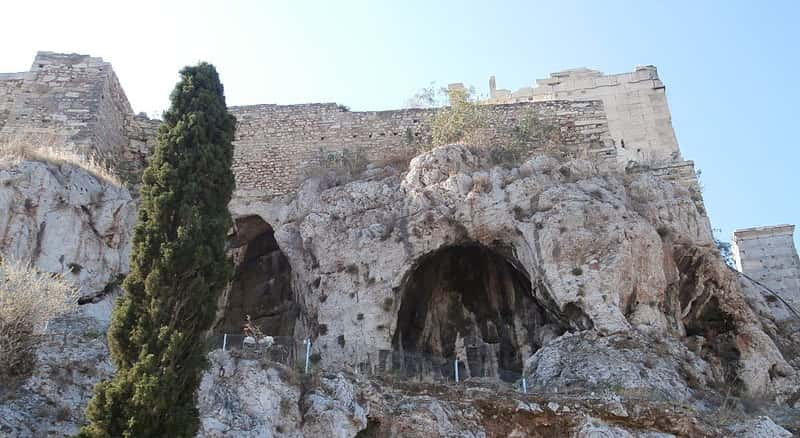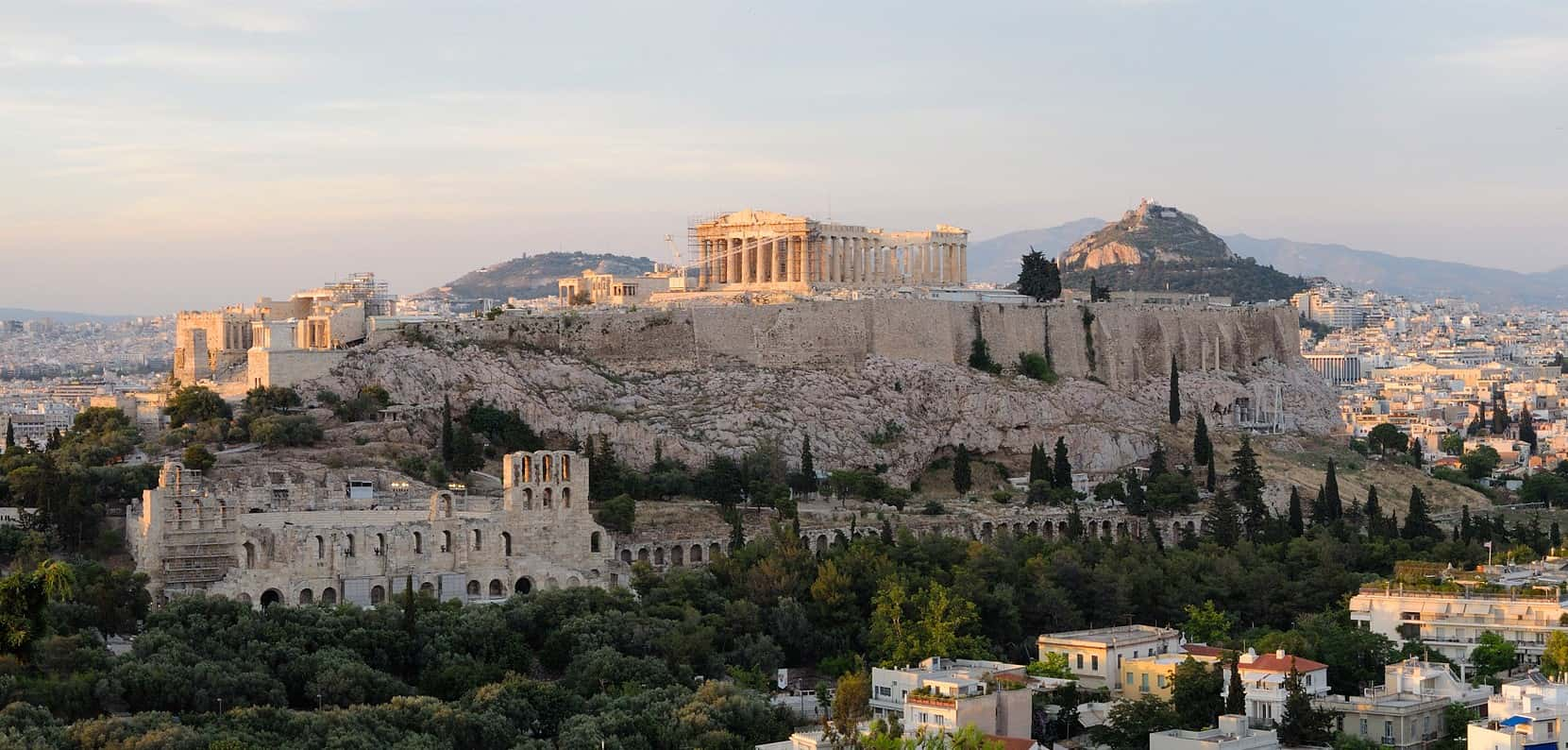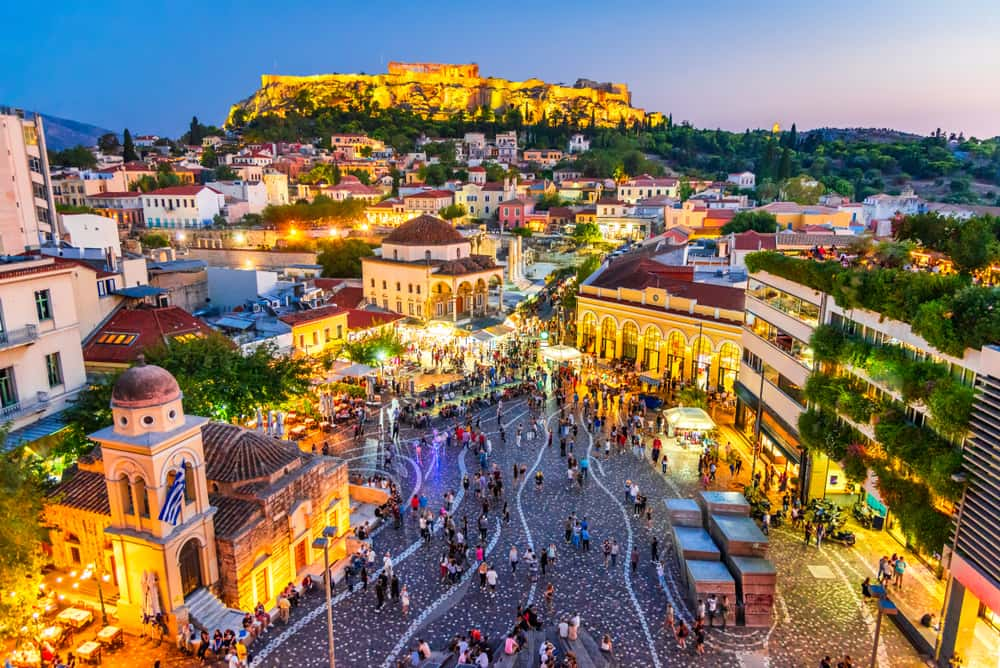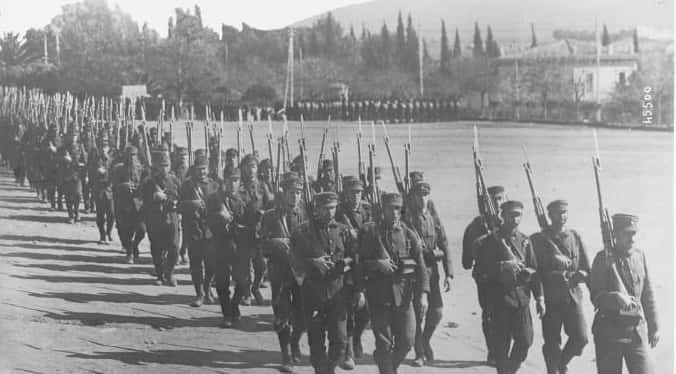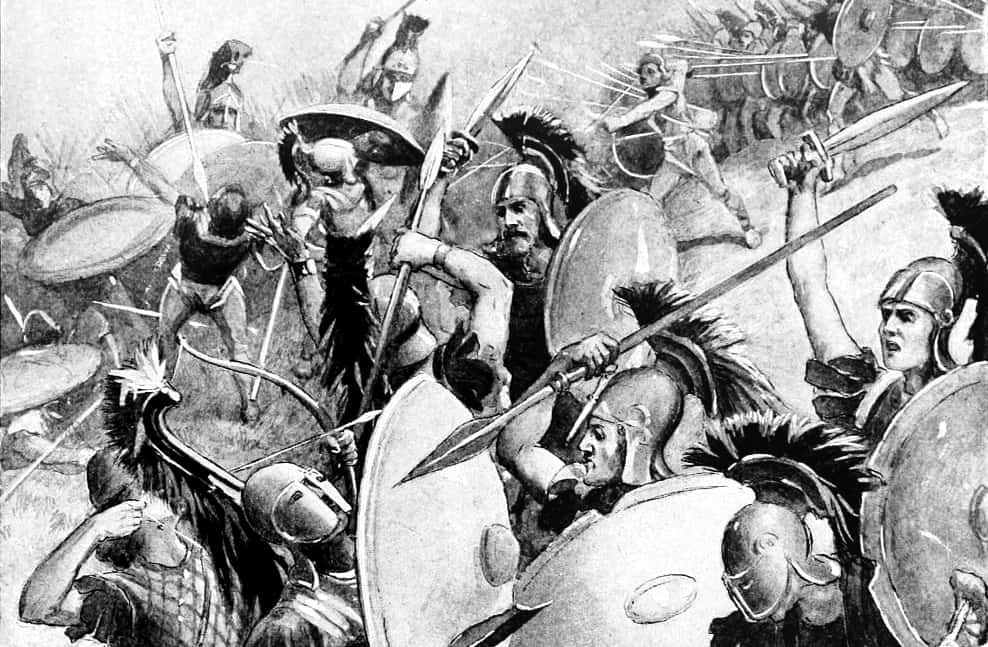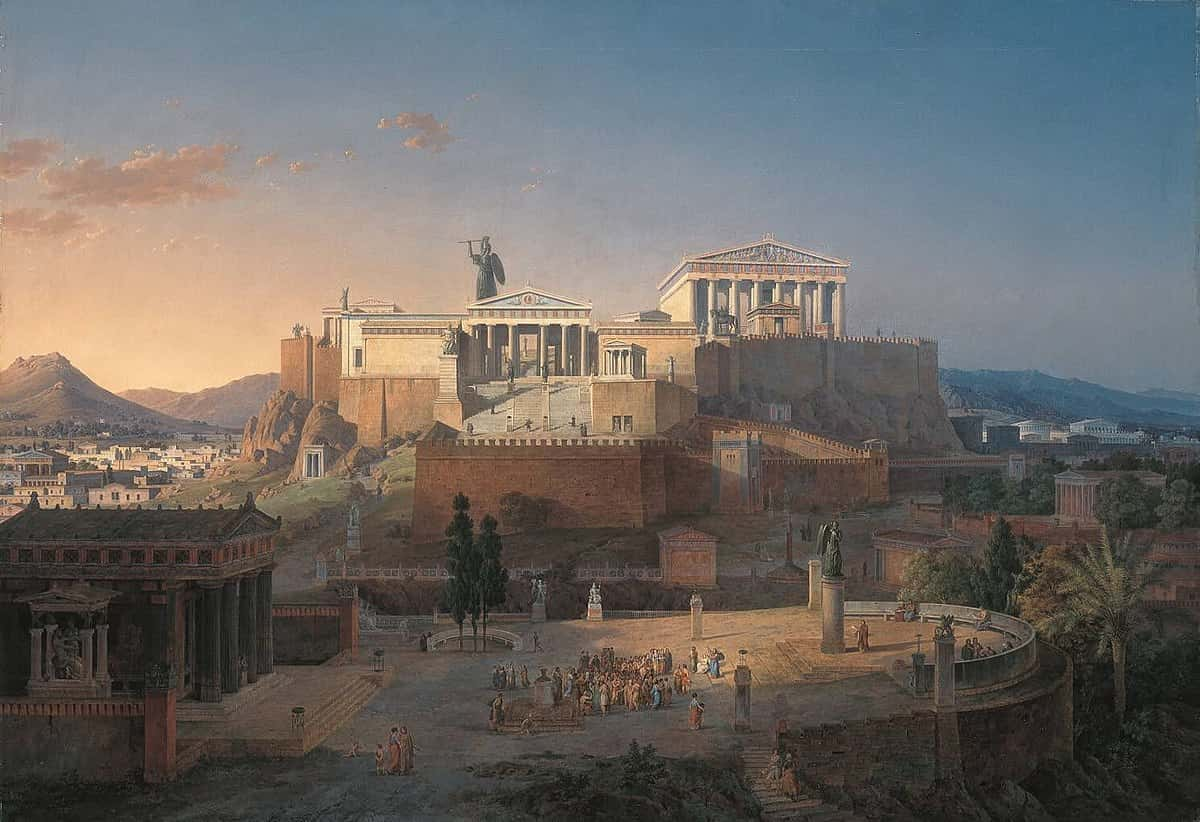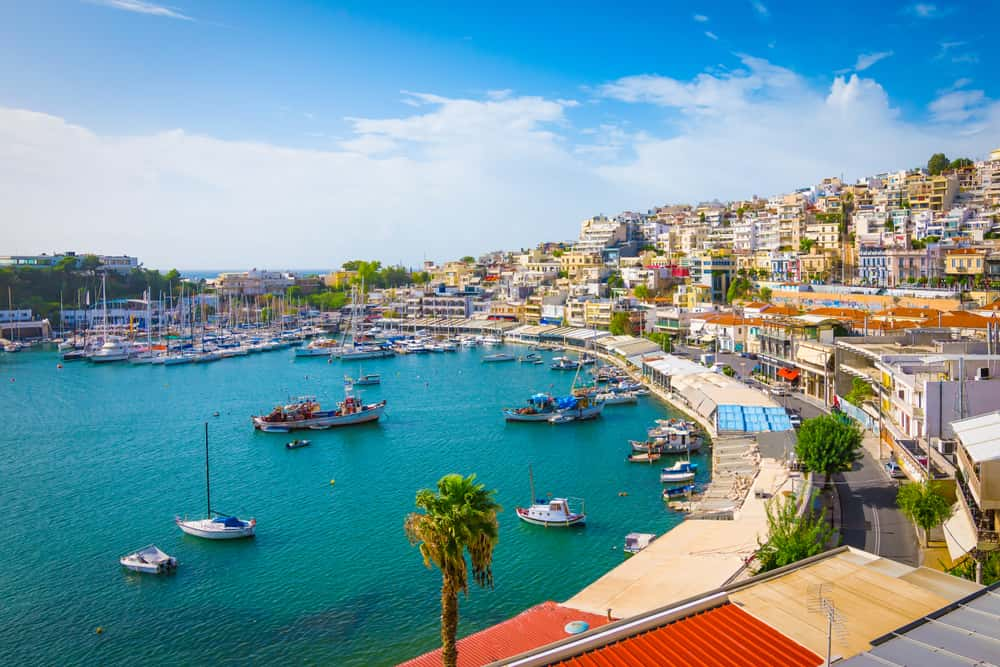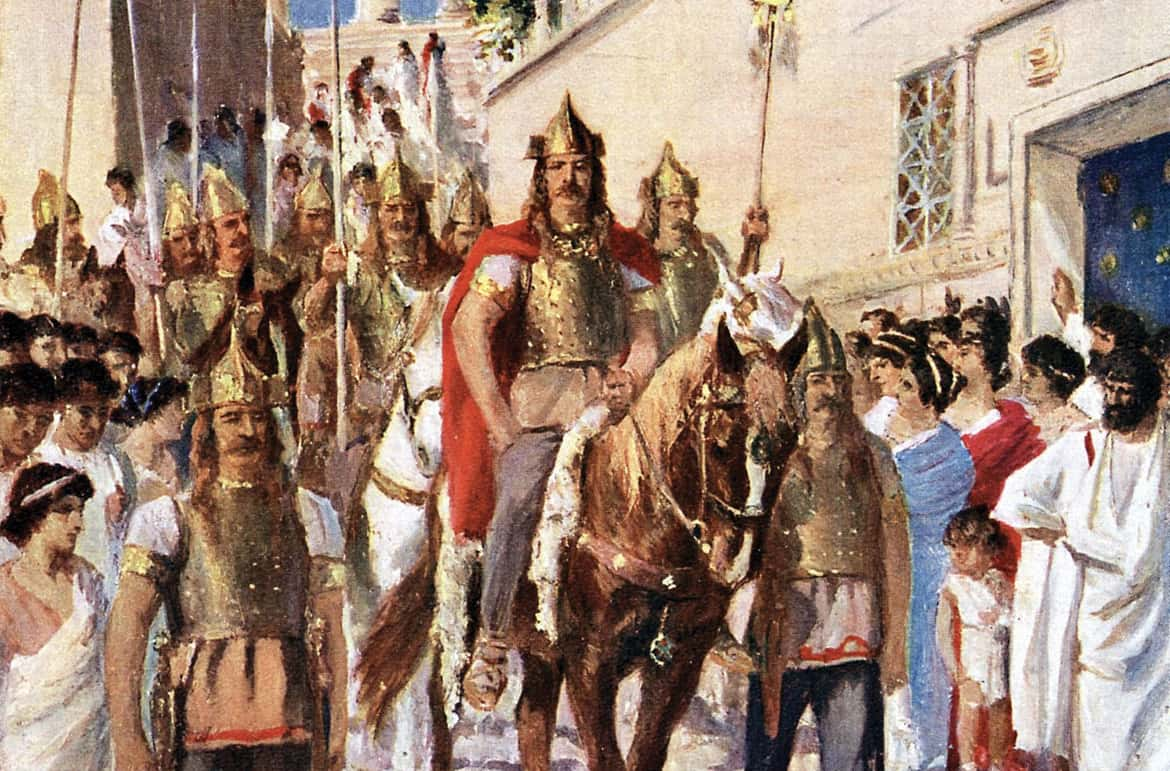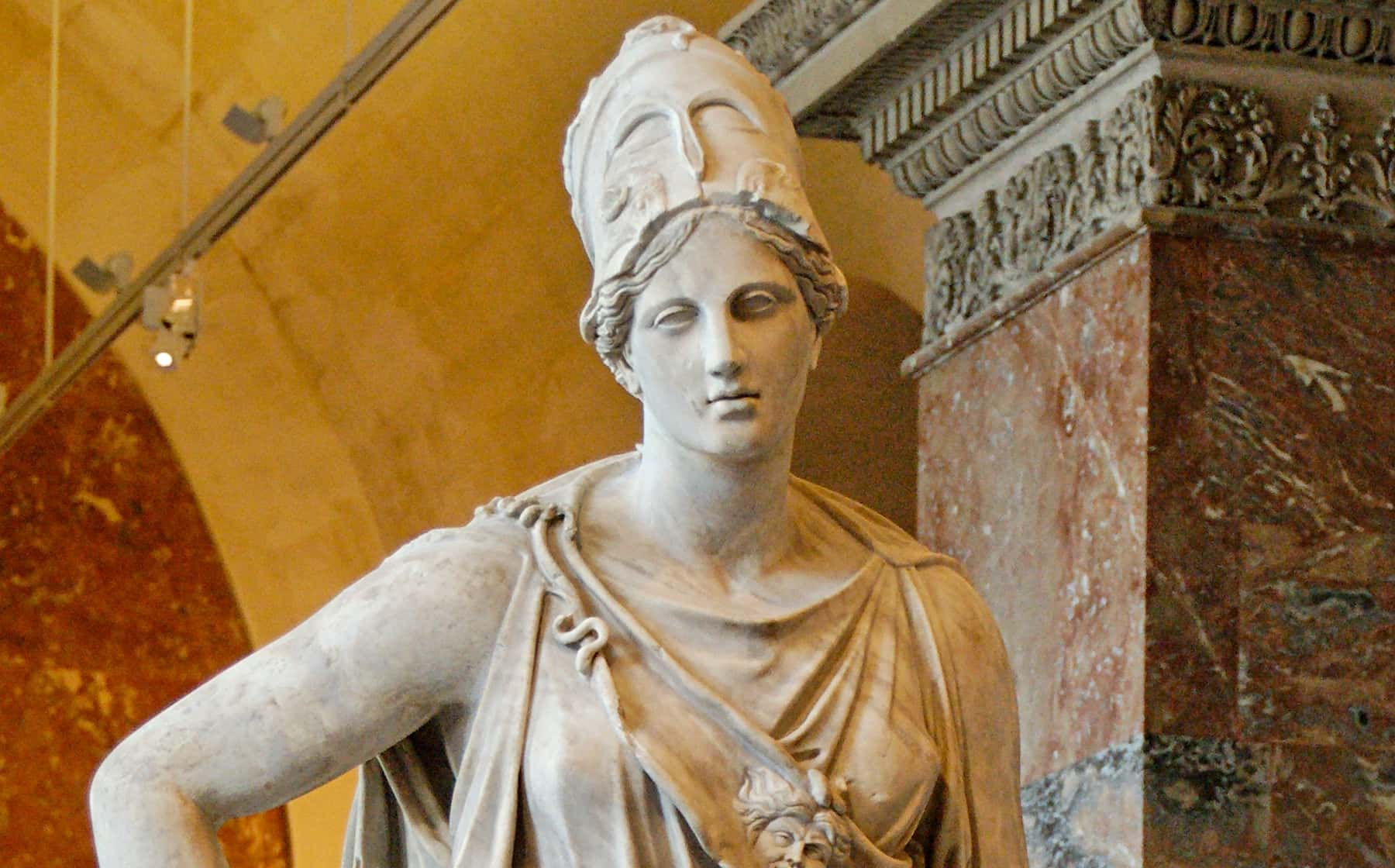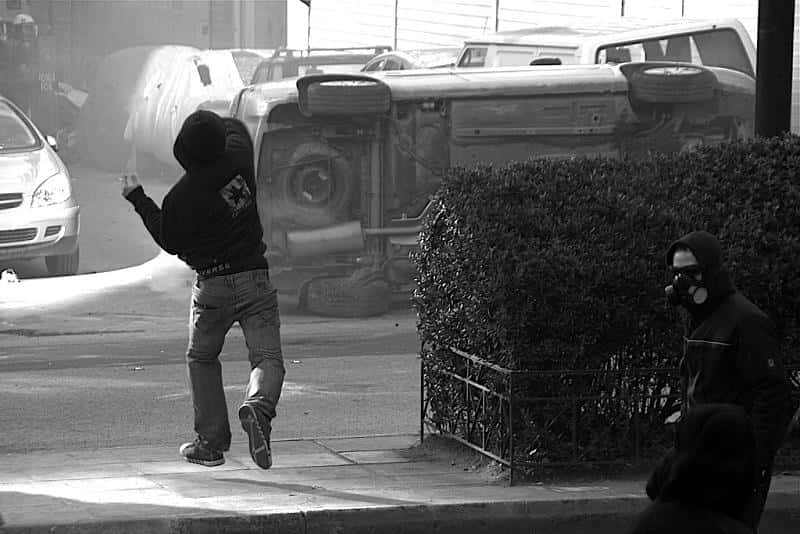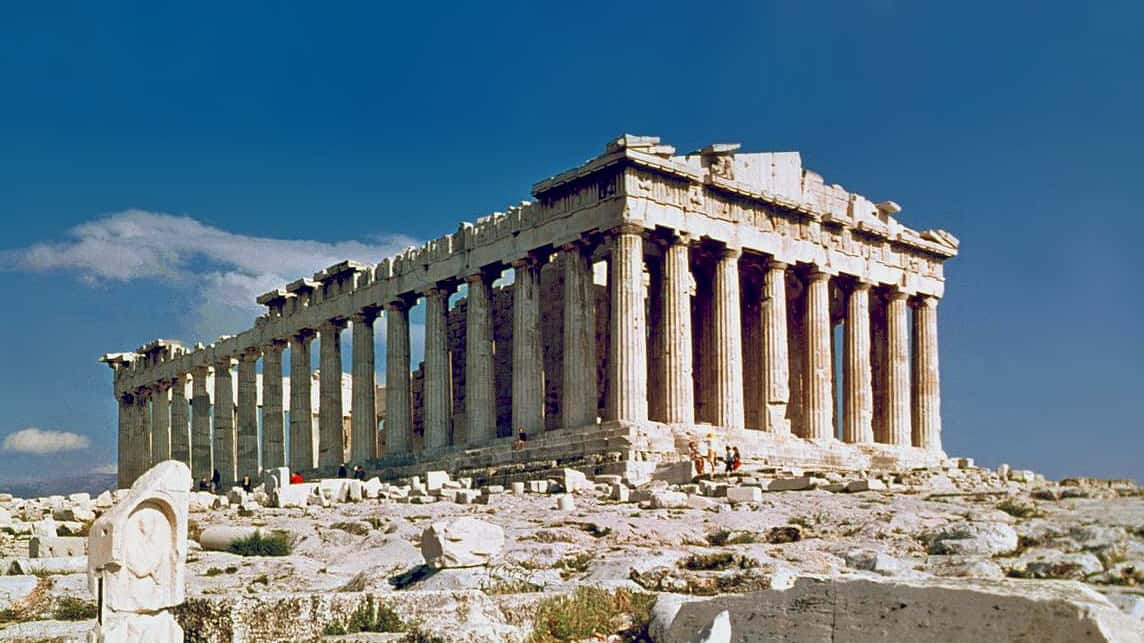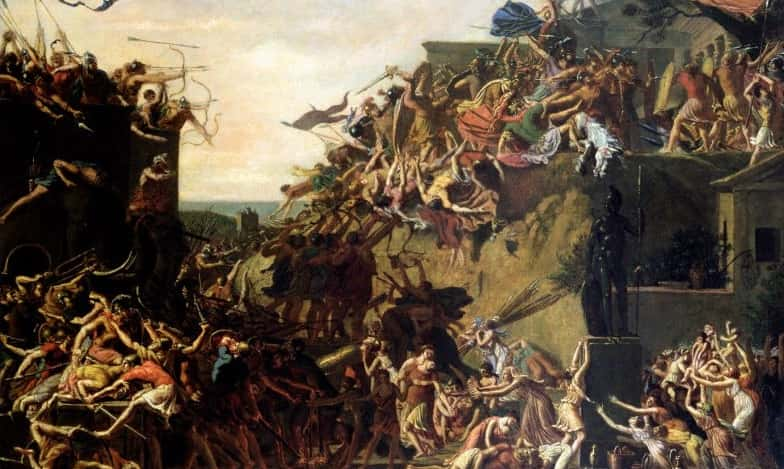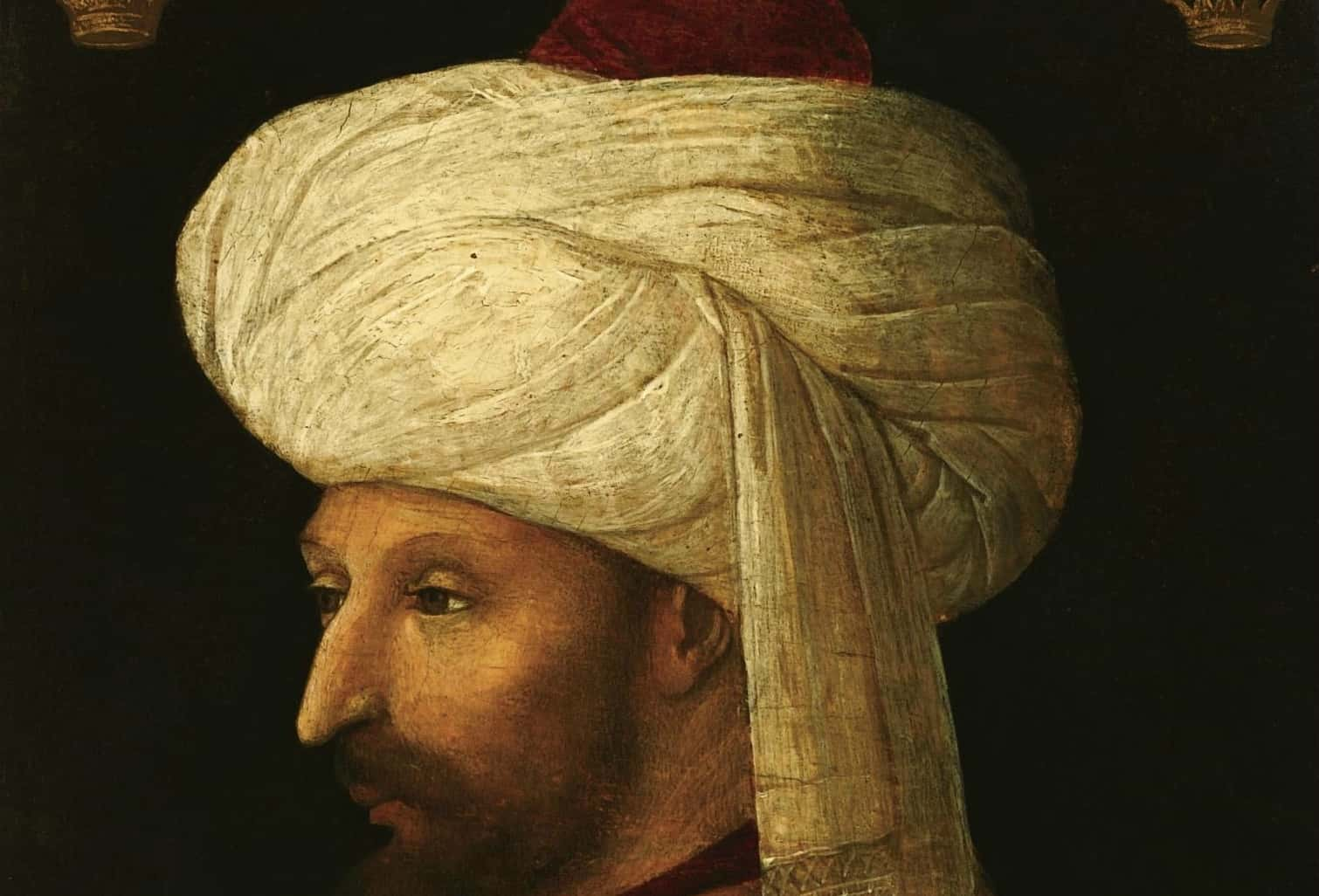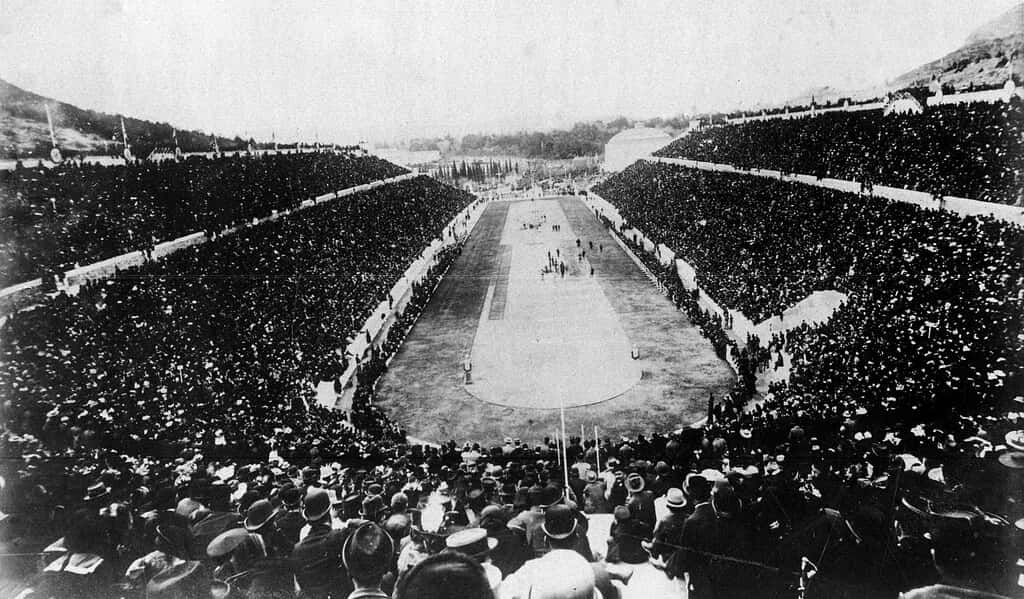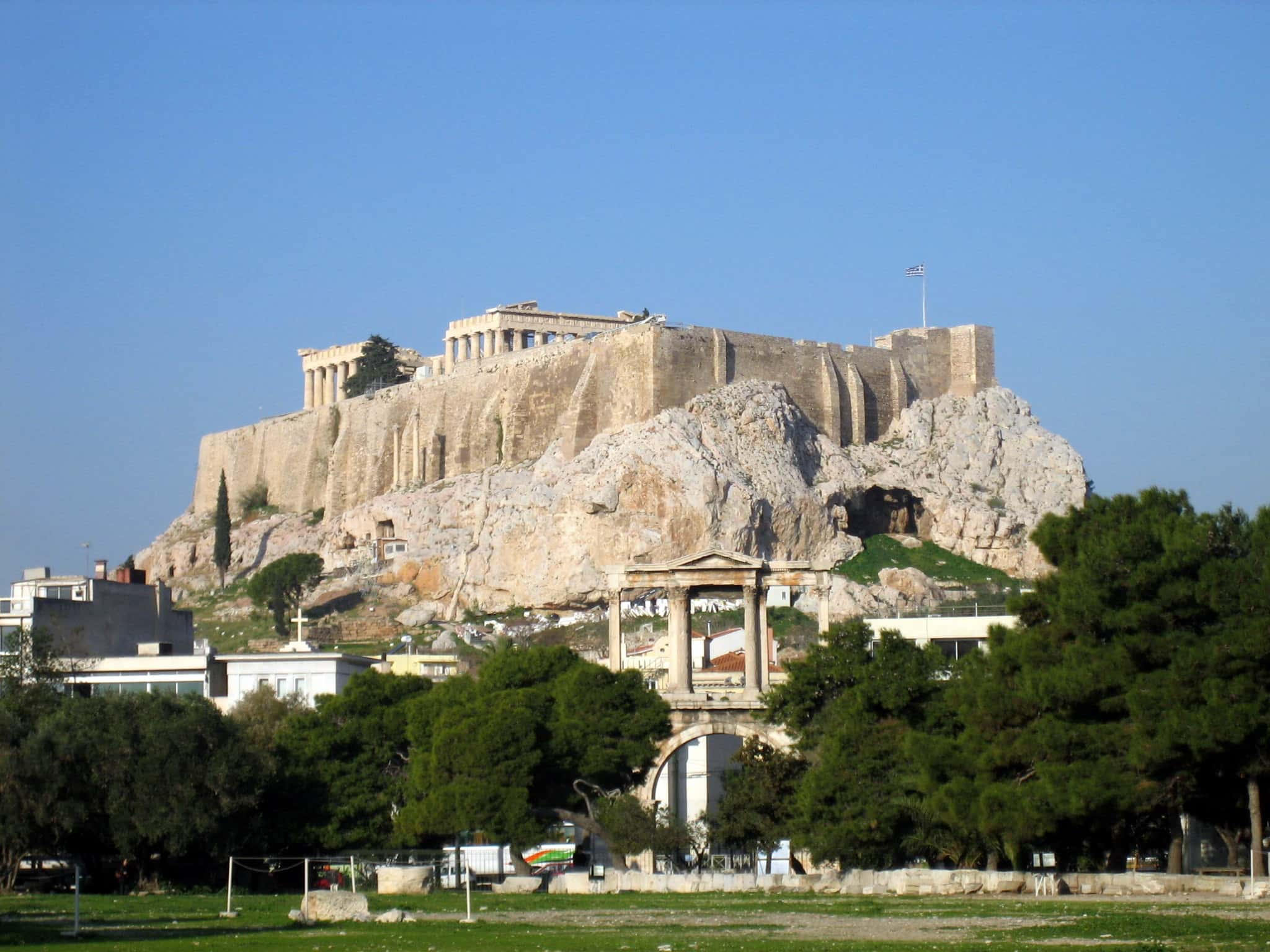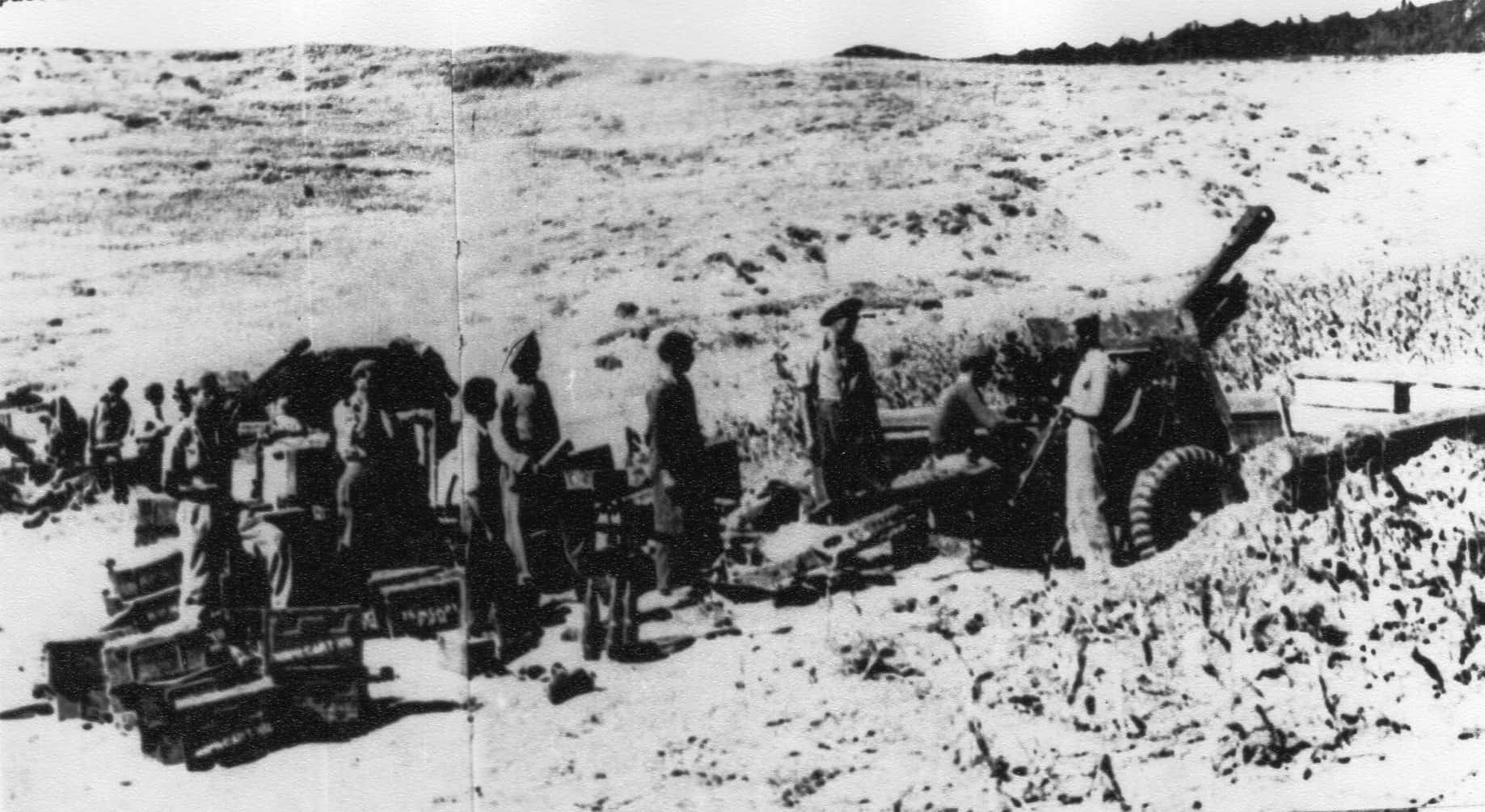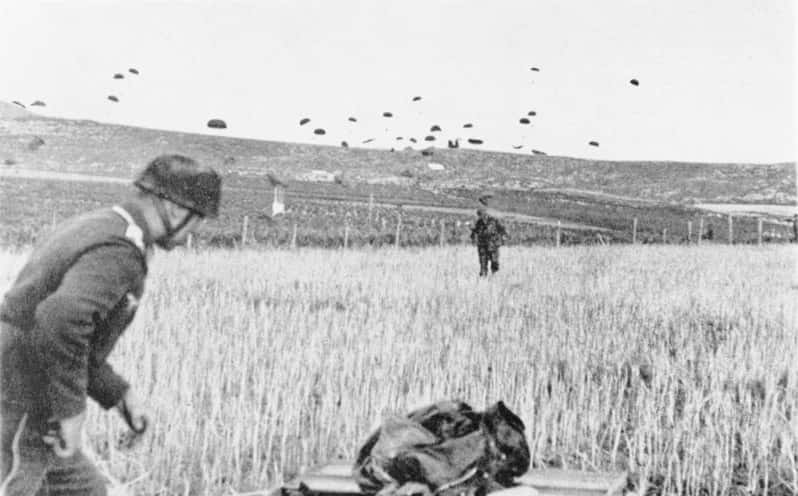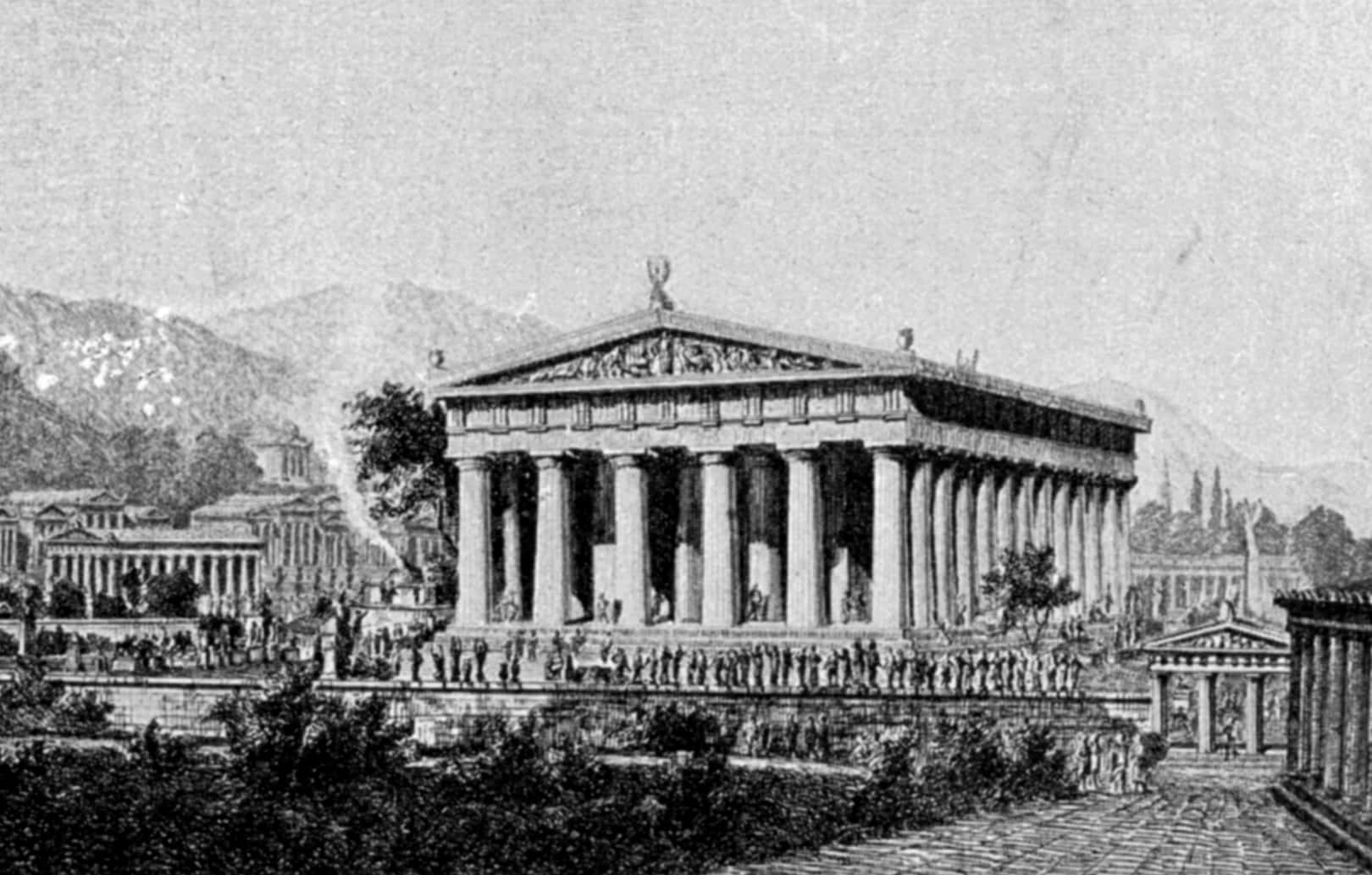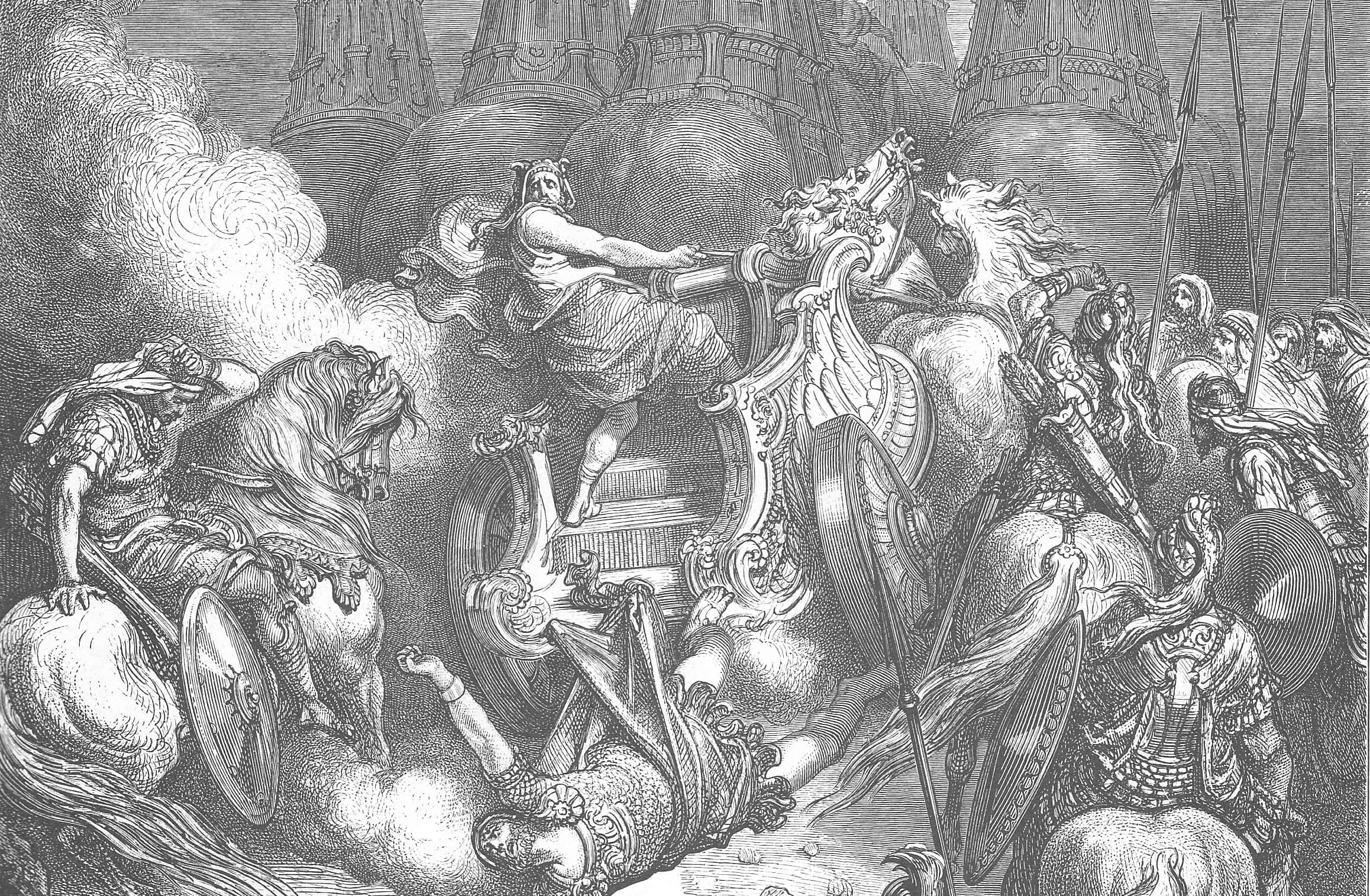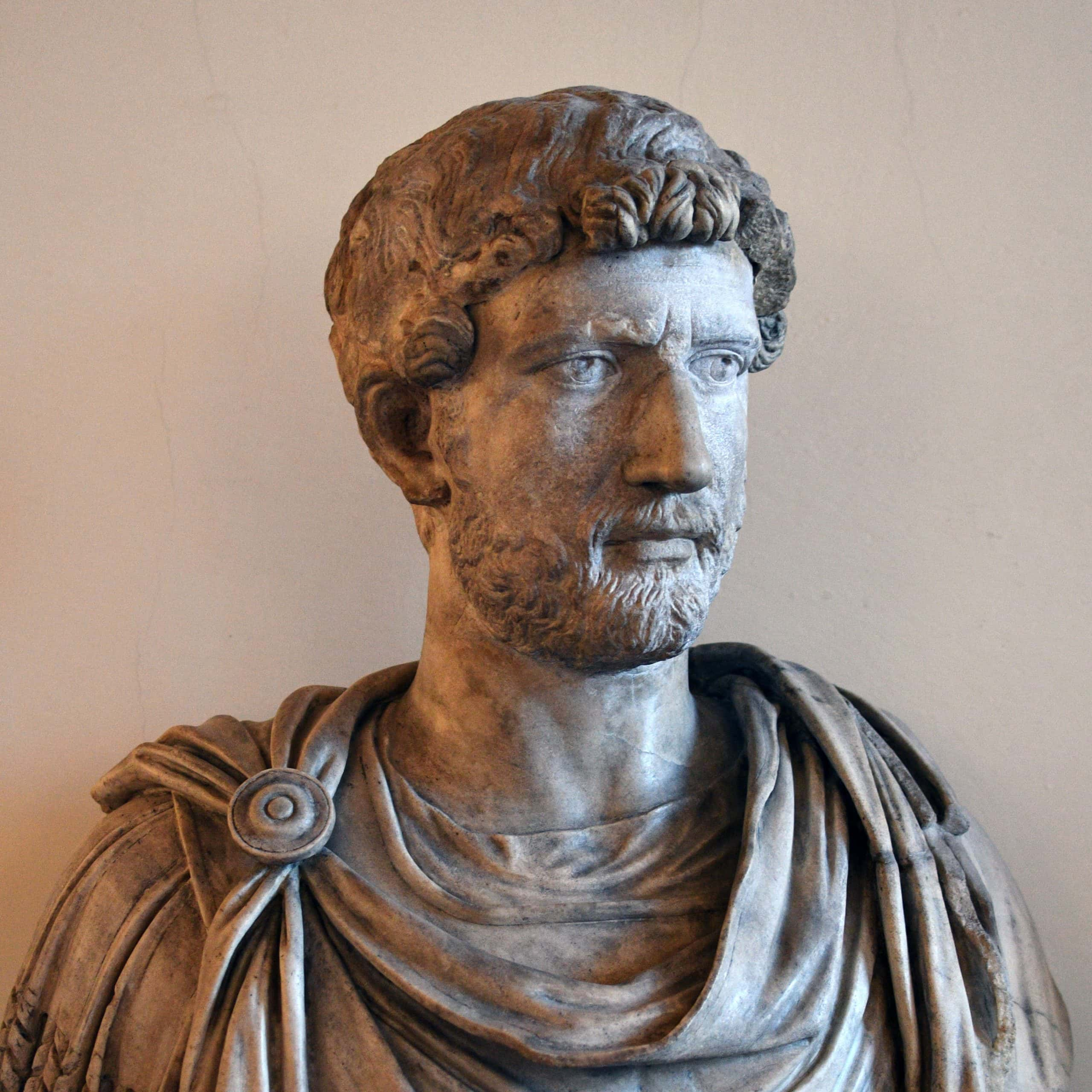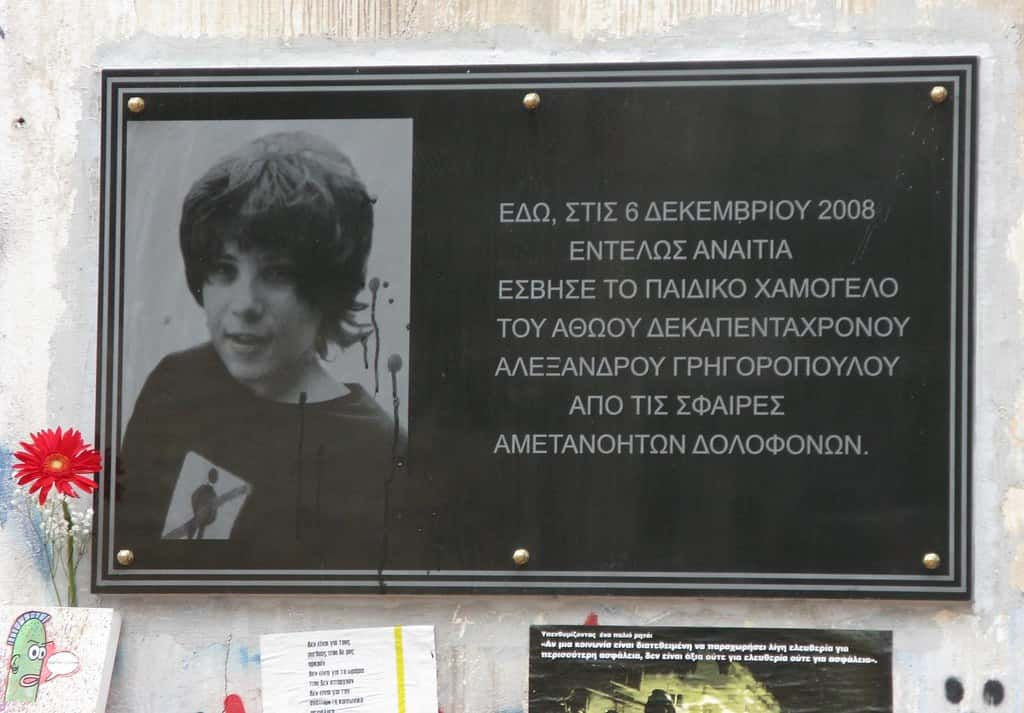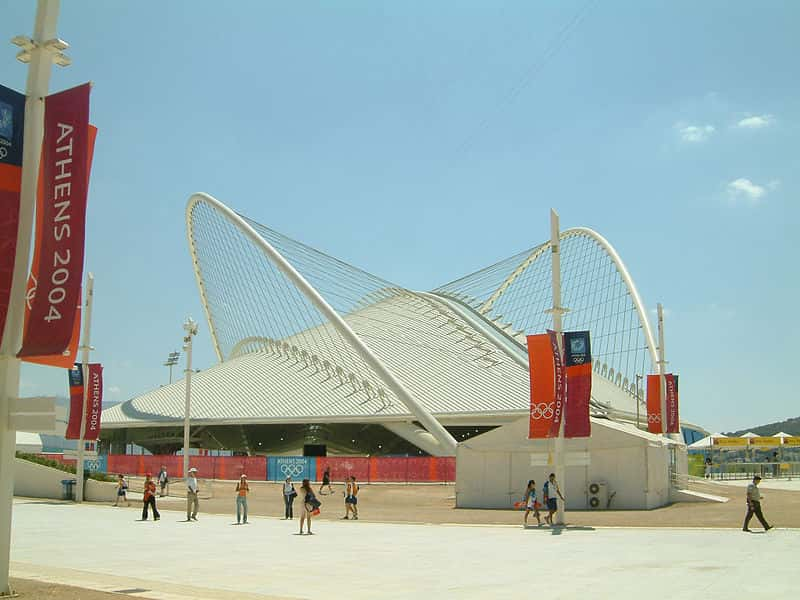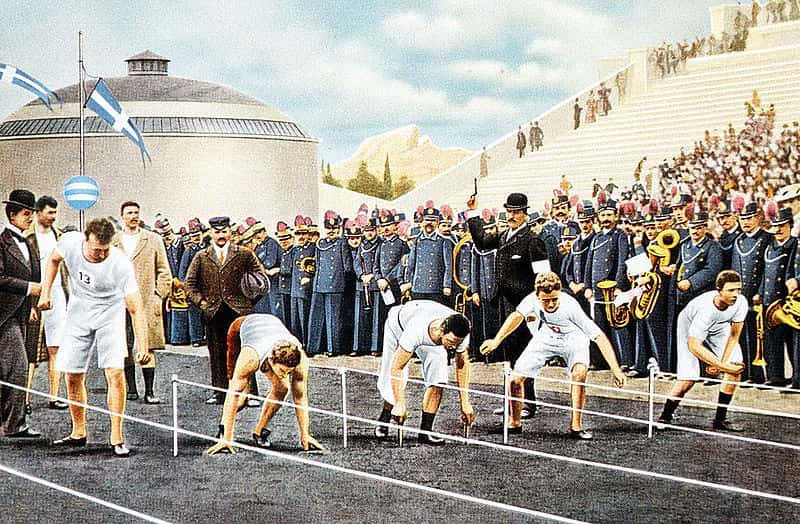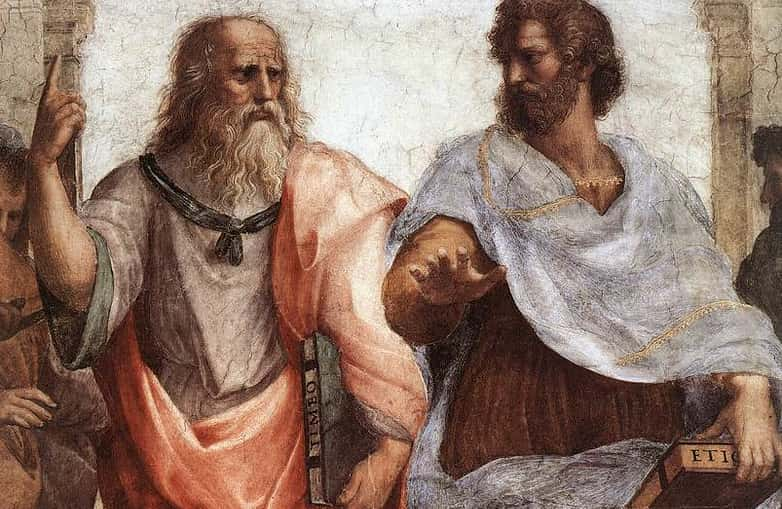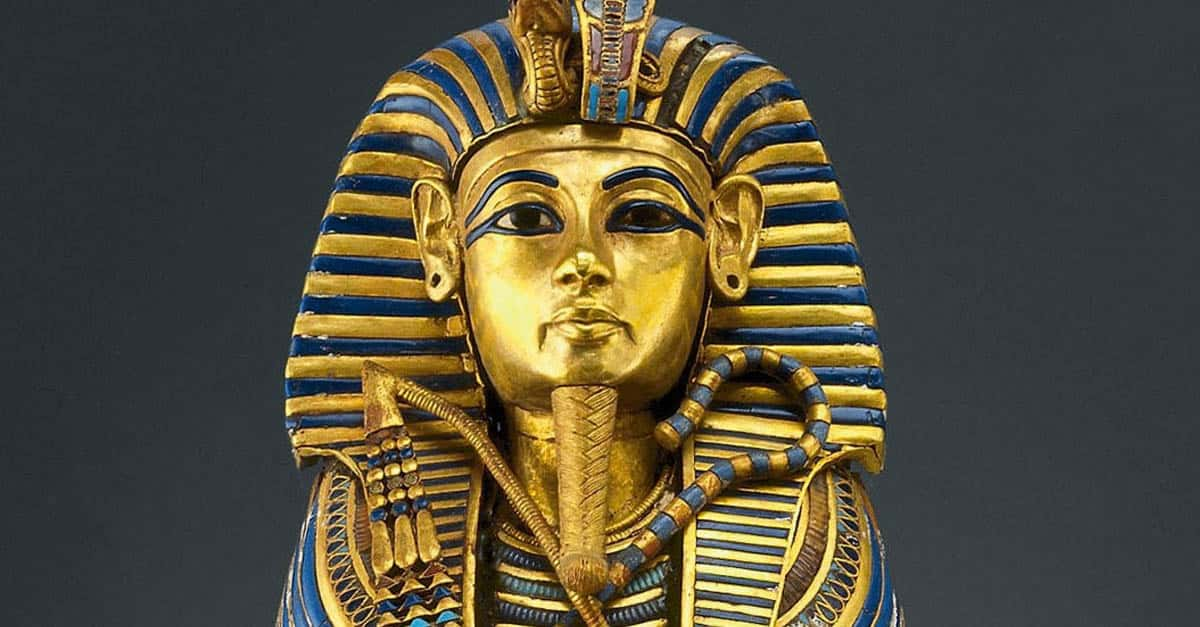One of the most famous and ancient capital cities of Europe, Athens holds a special place in the history of Western civilization. But is the city just resting on its laurels or is there more to Athens? Surely, a city this old has a more sinister side to its long life. Here are 42 astounding facts about Athens, the city that the poet John Milton called “the eye of Greece, mother of arts and eloquence.”
City Of Athens Facts
42. They Say of the Acropolis Where the Parthenon Is…
One of the main attractions in Athens is an ancient fortification on top of a hill in the middle of Athens. Known as the Acropolis, it overlooks the old Theatre of Dionysus, which could hold up to 17,000 people. The sacred buildings on top of the Acropolis include the Parthenon, the Erechtheion, and the Propylaia, all of which date back to the 5th century BC.
41. As Old as Time
The area on which the city of Athens now stands is said to have been continuously inhabited for over 7,000 years. The oldest discovered evidence of human settlement is the Cave of Schist, which might date back as far as 11,000 to 7,000 BC!
40. Look to the Sea
All this early settlement can be credited to Athens' handy location near the water. Unlike other main Greek cities of old, like Thebes or Sparta, Athens was ideally placed to be a center of trade and travel. As far back as the Iron Age in 900 BC, Athens was seen as the place to be if you wanted to make it big.
39. Enemies at the Gates
Despite winning the first victories of WWII against the Axis Powers, the Greeks were eventually overrun by the combined Italian and German forces. The Bulgarians arrived to aid the Axis, dividing Greece up between the three of them. German occupation of Greece was focused on the area around Athens, and they made sure everyone knew it by flying the Nazi flag over the Acropolis—definitely a low point for that monument.
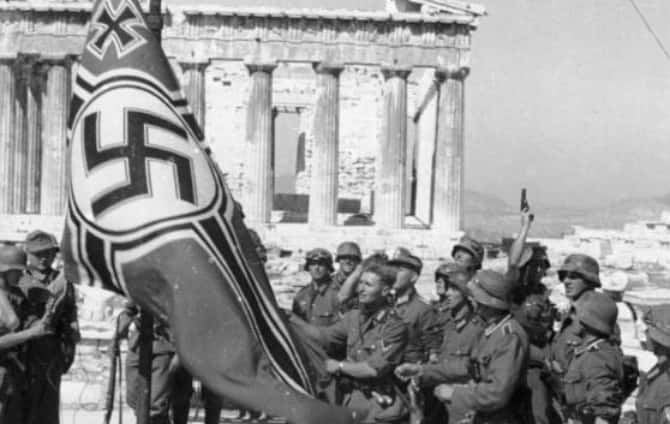 Wikipedia
Wikipedia
38. A Hungry Nation
Athens, like the rest of Greece, suffered terribly under the occupation of the Axis powers. Food was taken by the occupying forces, farmers hoarded rations for their families in response, and the general disruption of farm productivity due to a giant war going on all led to a period known as the Great Famine of Greece.
37. We Will Fight in the Shade
Surprisingly, despite Athens being the main urban center of Greece, a relatively high percentage of their Jewish population—about half—was saved from the Holocaust. In other parts of Greece, an appalling 90% of Jews were killed by the Nazis. One reason for the lower ratio of deaths in Athens was because the Jewish population had integrated so well amongst the Orthodox Christians that outsiders found it very difficult to locate them. Another reason was through the actions of heroic resistance fighters who sheltered Jews.
36. Xenophobia at Work
In the aftermath of World War I, the Greeks and Turks decided they weren’t done fighting. Given their history during the Ottoman Empire, we can’t be surprised that there was bad blood. After the Turks drove the Greek army and their allies out of Asia Minor, there was a massive population exchange. Based on religious and ethnic identity, both nations uprooted the minority groups in their nations which had connected to the other, and sent them “home,” as it were—even if said people had never set foot in Turkey or Greece or didn’t even speak those nation’s languages. Over one million were forcibly removed and sent in either direction. Many of these displaced people coming from Turkey ended up settling in Athens, which underwent an explosive period of growth with all these new citizens moving in and trying to build new lives for themselves. This was all before the Great Depression and World War II happened, mind you.
35. Paved with Good Intentions
One of the great Athenian heroes of his day was Cimon, who lived in the mid-fifth century BC. Son of renowned war hero Miltiades, who’d led Athenian forces to victory at the Battle of Marathon, Cimon earned renown for himself when he destroyed a large Persian fleet and army at the Battle of the Eurymedon. To show what a great guy he was, Cimon also donated the wealth from his conquests towards Athens’ infrastructure. Unfortunately, Cimon’s downfall was that he was a huge admirer of Sparta, which was rapidly turning into Athens’ main rival for control of the Greek city-states. When the serfs, or helots, staged a mass revolt in Sparta, it was Cimon who persuaded Athens to assist Sparta with troops as an olive branch—which ironically involved contributing to warfare. Unfortunately, when Cimon and his soldiers arrived, the suspicious Spartans turned the Athenians away. To the surprise of nobody, the Athenians ostracized Cimon shortly after that embarrassment. With Cimon out of the way, Athens and Sparta were a few steps closer to the huge Peloponnesian War.
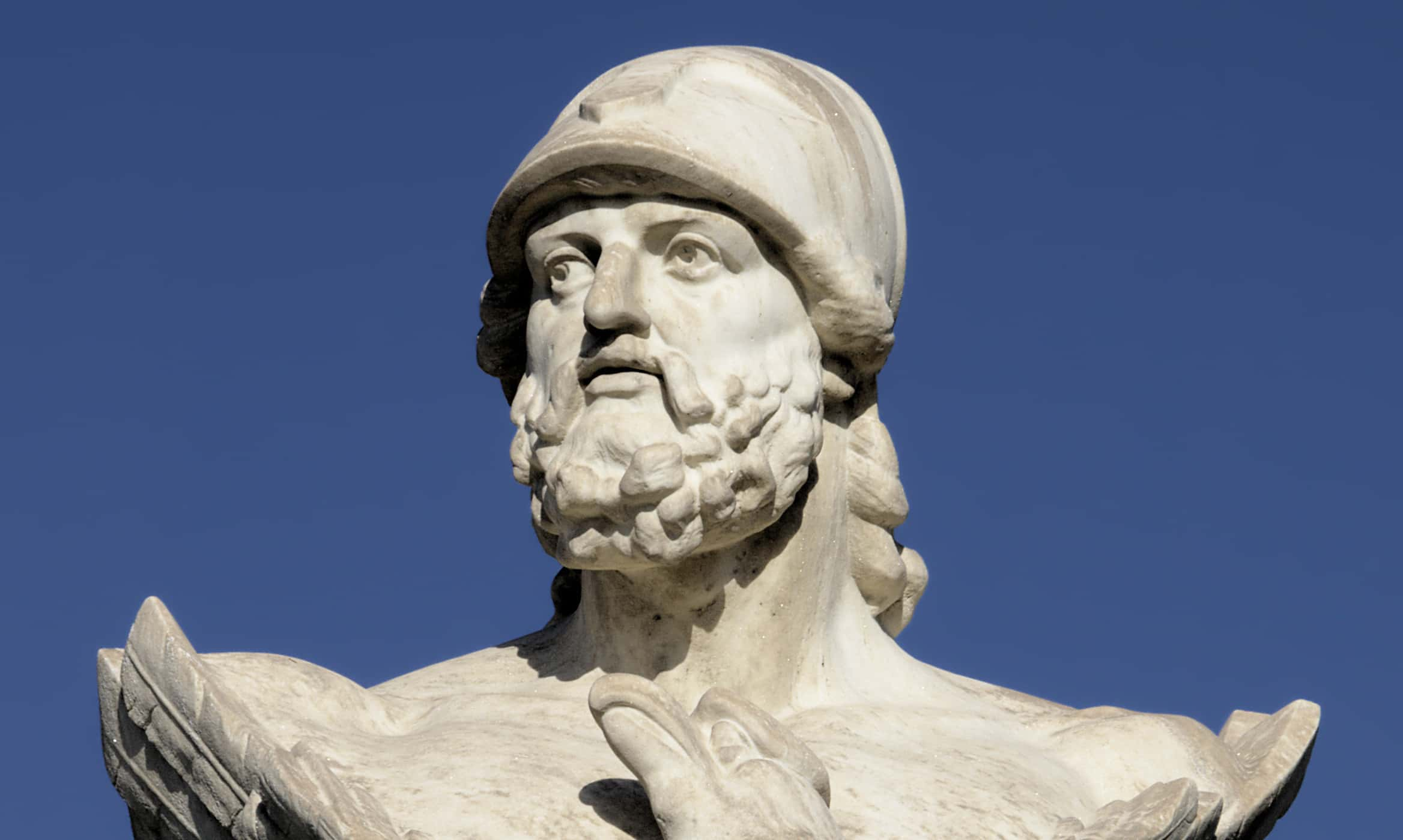 Wikipedia
Wikipedia
34. Dark Times
The Peloponnesian War resulted in the defeat of Athens by Sparta and its allies—helped in part by Persian finance. The triumphant Spartans removed the democratic system in place at Athens and installed an oligarchy of 30 men known to history as the Thirty Tyrants. Their rule over Athens resulted in widespread corruption, exiling prominent Athenians who were pro-democratic, and killing up to 5% of the entire Athenian population. Ironically, their ruthless measures to stomp out resistance only confirmed to the city of Athens that they needed to be overthrown. As a result, the Thirty Tyrants’ rule lasted a mere eight months before they were forced to abandon ship—an apt metaphor for Athens, we think.
33. Athenian Artifacts
Not surprisingly, Athens is a world center for the subjects of history and archaeology. The city is home to a total of 17 Foreign Archaeological Institutes. Sadly, Indiana Jones has been unable to attend any of them.
32. We’ll Take Bronze
In 2015, 240,000 people were asked by European Best Destination to vote on which European city was the best one to visit. Athens came in third place.
31. Dunking in Greece
Believe it or not, Athens has a notable position in the world of basketball. The city hosted the final game of the Euroleague three times during the 1980s and 1990s.
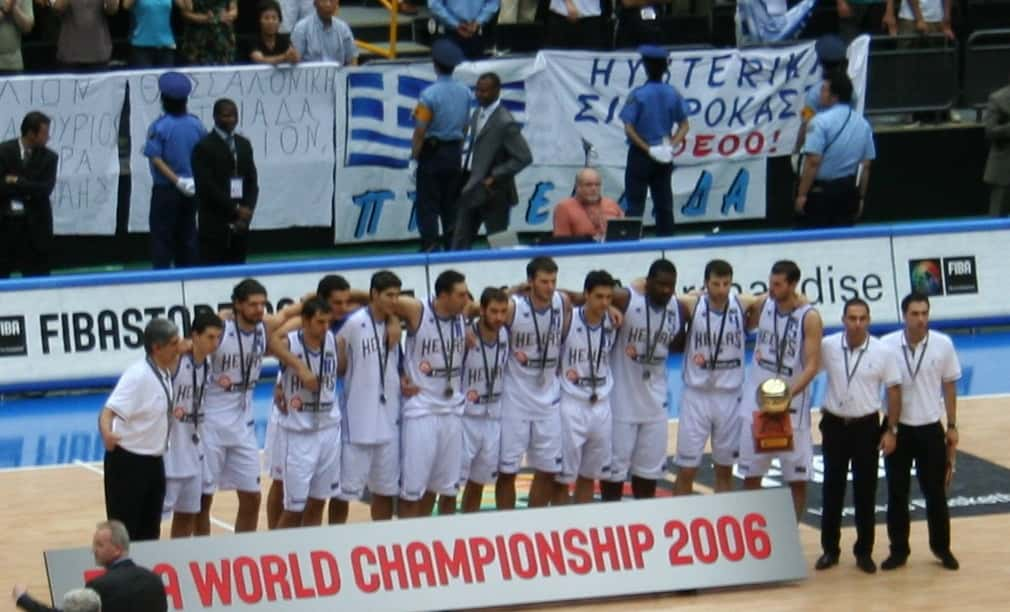 Wikipedia
Wikipedia
30. Dodged a Bullet There…
In the late 4th century AD, Greece was invaded by the Visigoths, led by Alaric, their first, and arguably most famous, king. The Visigoths were interested in plunder, and the Roman Empire was in such decline that they couldn’t hold the Visigoths in check any longer, so a large part of Greece was ravaged and plundered. However, Alaric spared Athens from this fate, because the city opened its gates to the king and didn’t put up a fight. Sadly, Rome didn’t take a lesson from Athens and was famously sacked by Alaric and his army shortly afterward, which some historians mark as the death knell of Rome.
29. Arianna of Athens
Many famous figures have been born in Athens, though the ones that most people tend to remember were born and died before the Middle Ages even happened. However, one notable example of a famous Athenian in the modern today would undoubtedly be Arianna Huffington, the co-founder and former editor-in-chief of the Huffington Post.
28. A Special Event
In addition to the Olympic Games, Athens also hosted the 2011 Special Olympics Summer Games. Over 7,500 athletes traveled to Athens to participate, representing 185 countries.
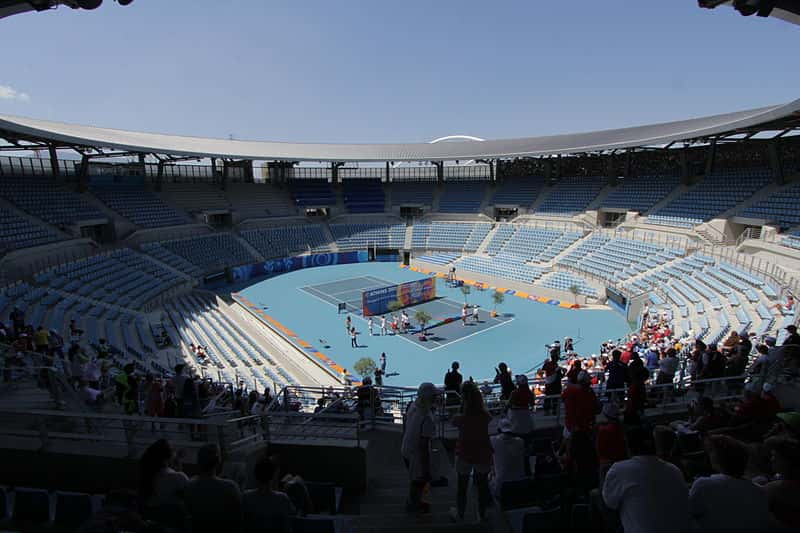 Wikimedia.Commons
Wikimedia.Commons
27. Name That Town!
According to the legends and mythology, the city of Athens was named after Athena, the Greek goddess of wisdom and war, among other things. She and the god of the ocean, Poseidon, had a rivalry over who would become the patron of this new city. Each bestowed a gift to the city and were judged on which was the better gift. Depending on the different versions of the legend, Poseidon either gave the gift of water or the horse. In both versions, however, Athena prevails with her gift of the olive tree.
26. Raging Against the Greek Machine
Between the years of 1985 and 1986, Athens was witness to a vicious battle between the police and various anarchist groups who were sick of corruption in their society, as well as presumably not being taken seriously. Athens could scarcely have a day go by without a clash or riot breaking out somewhere, and things took an especially dark turn when the police shot and killed 15-year-old Michalis Kaltezas. The anarchists’ reaction was explosive, to say the least, and the police ended up cracking down even harder on the anarchist movement.
25. You Just Made Yourselves a Powerful Enemy!
The high-water mark in the anarchist movement of the 1980s was when a right-wing event being hosted in the Caravel hotel was attacked and overrun by an anarchist demonstration. One of the attendants whose night was interrupted was the far-right French politician Jean-Marie Le Pen, who some of you may know as the guy whose daughter was trying to become the leader of France in their last election in 2017.
24. An Inconvenient Truth: Athens Edition
In the 1970s, the air pollution in and around Athens was so bad that it was doing great damage to the ancient ruins of the Parthenon on the Acropolis. Action taken during the 1990s eventually helped amend the worst of the air pollution, but smog occasionally still hits, particularly in the hot summers. Sorry, tourists.
23. Welcome!
Athens contains the largest of the many international airports found in Greece. In fact, the nation has one of the highest numbers of international airports of any country in Europe. This might be due to the fact that the number of tourists which visit Greece per year is greater than the entire Greek population!
22. Be a Good Sport
Although the first Olympic Games ever held were located in Olympia in 776 BC, the first "modern" Olympic Games were held in Athens in 1896. They finally returned to Athens in 2004.
21. Abandoned to the Enemy
Most are aware of the heroic last stand of King Leonidas of Sparta and his 300 Spartans at Thermopylae—though they forget the thousands of Greeks who fought alongside them and the hundreds of said allies who were there for the last stand as well. However, the Battle of Thermopylae did nothing to stop the Persians from ravaging a large portion of the Greek mainland when they did pass through. Athens was abandoned and deserted when they got word of the Persians’ approach, allowing the Persians to raze and plunder the city unopposed. It wasn’t until the victorious naval Battle of Salamis, followed by Plataea and Mycale, that the Persians were defeated and driven out of Greece.
20. Not Again!!!
You would think that after the Persians, the Macedonians, the Romans, and the barbarian invaders, Athens had finally taken all it could of being raided or occupied by outside forces looking for plunder. No doubt they were screaming with frustration when the Ottoman Empire came knocking in the 14th century AD. However, it was a kinder, gentler domination than they were used to by then. This was because Sultan Mehmed II rode into Athens and was so amazed at the ancient architecture in the city that he forbade his forces from looting on the pain of death. The Athenians couldn’t really breathe a sigh of relief, though; the Ottoman domination of Greece would last until the 19th century AD.
19. Downsizing
During this occupation by the Ottomans, the city of Athens lost a lot of prestige as a city. In fact, the city’s population fell dramatically during the centuries as people moved elsewhere. By the time that Greece was finally liberated, Athens had a population which was small enough to cluster in about 400 houses around the Acropolis!
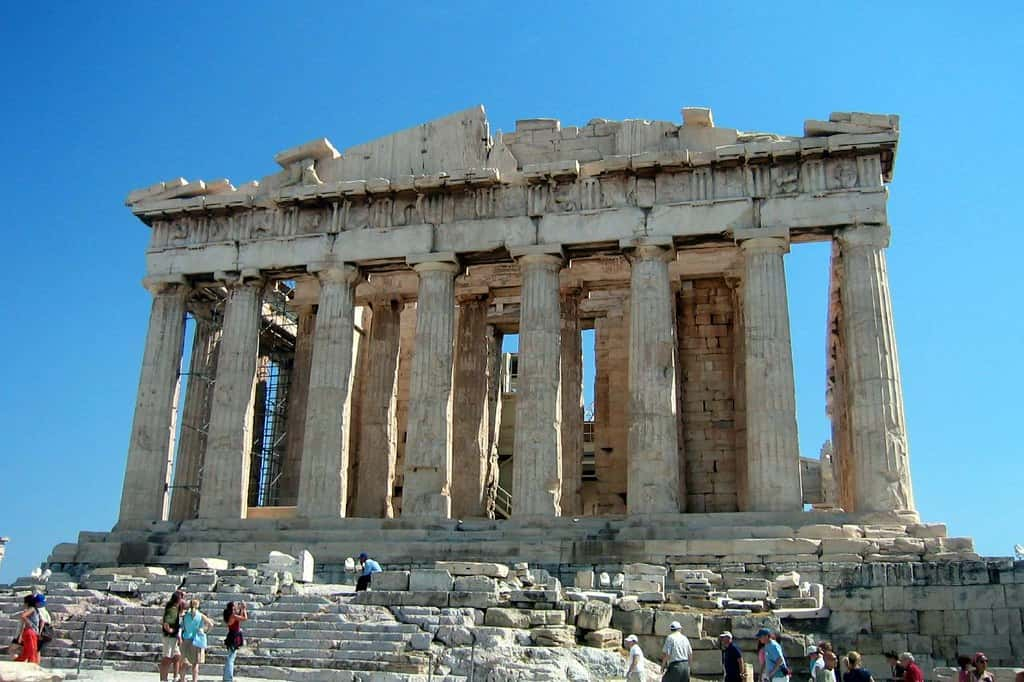 Flickr
Flickr
18. No Lunch Breaks Either, We’re Guessing
The Olympic Games have many dark sides that the International Olympic Committee doesn’t want the average person to know or think about while they watch their nation’s athletes compete—in between endless commercials, of course. The 2004 Summer Games in Athens were no exception. According to the BBC, the workers hired to construct the buildings in Athens for the games were mostly from eastern Europe and southern Asia. Not only were they working without adequate supervision, they also lacked the kind of protective equipment that any self-respecting union would insist on having before they even looked at a building contract.
17. Games on a Foundation of Blood
As a result of these shady practices during the construction of the 2004 Summer Olympics in Athens, an official death toll of 14 workers was released to the public. However, according to a source which the BBC spoke with, that number was too low to be accurate. He suspected that as many as 40 people died during the construction process. Frankly, when men “are being forced to work long shifts, up to 14 hours a day every day, in very hot temperatures and under constant pressure to complete construction work in time for the Olympics,” how could anyone act surprised if that regimen turns out to be a health risk?
16. You’ll Never Take Me Alive!
Despite the horror which came out of the invasion of Greece in World War II, one story of heroism which emerged was that of the Greek soldier known as Konstantinos Koukidis. Koukidis was on flag duty on the Acropolis when the Germans took Athens. Allegedly, Koukidis was ordered by the Germans to take the Greek flag down, hand it over, and raise the Nazi flag in its place. Koukidis obeyed the first part of the order, but then wrapped the Greek flag around his body and jumped from the Acropolis to his death. Admittedly, the evidence of his existence has yet to be confirmed, as it could have simply been a story invented to encourage Greek resistance to the occupying force. Despite the doubt, a plaque stands in Athens near the area where he supposedly fell from the Acropolis to honor his choice of death rather than assisting Nazis in any way.
15. Civil War (the Non-Marvel Kind)
After the Second World War, you’d think that the Greeks would have had enough of bloodshed and misery. However, things were just starting to get ugly for them. Once the Nazis were removed from power, fighting broke out in Athens between the powerful left-wing resistance group known as the EAM-ELAS and the Greek government, not to mention various groups of right-wing resistance fighters who were backed by the British army.
14. 1 Month 1 Week 1 Day
The fighting in Athens, which lasted from December 3, 1944, to January 11, 1945—see the title—was being done even as the Second World War was still raging in other parts of Europe. This was a disastrous PR move for the British, who were already showing their anti-communist colors by advising the government and right-wing militias against EAM-ELAS. Interestingly, the Soviet Union did not support the left-wing factions, some of whom identified as Communist. The theory was that with the British involvement, the USSR benefitted from doing nothing. Either EAM-ELAS would win and become Soviet allies, or else the British involvement in their defeat would be good for propaganda. In the case of history, the latter outcome happened, and Greece underwent a period of targeting Communists and left-wing groups alike for several years, despite the fact that many of them had fought bravely against the Nazis and their allies during World War II.
13. A Symbol of Oppression!
At one point in history, the city of Athens was the proud owner of the Temple of Zeus, one of the Seven Wonders of the Ancient World. However, its origin story has somehow been swept under the rug, despite it being the most interesting aspect of the temple. Construction began in 520 BC on the orders of the tyrant Peisistratus and his son, Hippias. They hoped to one-up the Temple of Artemis, another Wonder. Ten years later, the Athenians rebelled and exiled the tyrants and ceased all work on the project, leaving it unfinished for over 300 years. It was actually decried by people like Aristotle for being an example of how despots divert the attention the people they oppress with huge, overly gaudy building projects so that they’re too distracted or tired to rebel. Pretty on the nose, all things considered.
12. Worse Luck Than Terry Gilliam
In 174 BC, the project was finally revived by Antiochus IV, King of the Seleucid Empire, who found himself hanging out in Athens and was bored enough to take up an old unfinished project that was still lying around. Construction on the massive Temple finally resumed, but things were stalled again when Antiochus died. Then in 86 BC, the Roman leader Lucius Cornelius Sulla raided Athens and stole a bunch of the columns off the half-finished building site for his own vanity projects back in Rome. For such a spectacular tribute to Zeus, he really didn’t help the Athenians out when it came to actually building the damn thing!
11. Finally!
Amazingly, the Temple of Zeus was finally completed, but not until the reign of the Roman Emperor Hadrian in the 2nd century AD. For anyone not keeping count, that’s over 600 years after the project began. The worst part of it was the fact that the Temple of Zeus barely lasted a fifth of that time before it was badly damaged when the Herules sacked Athens—why didn’t they ever learn how to defend themselves? The ruins of the Temple were closed to the public by Roman Emperor Theodosius when he decided that Christianity was going to be the Roman way, and the old gods weren’t fashionable anymore.
10. This Time, the Good Died Old
If the Nazi occupation of Greece was ever to be made into a film, one of the many Oscar moments would undoubtedly go to the actions of Apostolos Santas and Manolis Glezos. These two 19-year-olds, as one would expect of any decent human being, were sickened at the sight of the Nazi flag flying over the Acropolis. Unlike many, they decided to do something about it. On the 30th of May 1941, just over a month after it was raised, Glezos and Santas snuck up to the Acropolis at night and tore the Nazi flag down, leaving the pole empty the next day. This act was said to have inspired others to join the Greek resistance. Because we all need a happy ending, both men survived the war and lived long enough to be honored for their heroism. Despite enduring multiple arrests, torture, and persecution in their younger years, Santas died at the ripe old age of 89, while Glezos is still alive at 95. We’re thinking it’s about time they got a movie or two.
 Wikimedia.Commons
Wikimedia.Commons
9. Just One Spark…
One of the darkest and most turbulent moments in the modern history of Athens occurred in December 2008. Greece was reeling from accusations of corruption in the government and infrastructure, it had been hit very hard by the 2008 economic crisis, and unemployment was skyrocketing as a result. On top of all that, two police officers in Athens found themselves facing off against a group of youths. Ordered to withdraw from the situation, the officers disobeyed and confronted the youths. Witnesses disagree on what exactly happened next, but the basic aftermath was that a police officer fired his gun, and a 15-year-old boy was killed by a bullet fired from the officer’s gun.
8. … And the World’s on Fire
Amid everything else going on, the shooting death of Alexandros Grigoropoulos pushed everyone over the edge. Riots broke out across Athens as people demanded justice for Grigoropoulos. The officers’ counsel, meanwhile, tried to defend his clients by claiming that the slain youth, despite his affluent upbringing, had displayed “deviant behavior”. This claim of deviancy was denied by everyone who’d known Grigoropoulos, and only fueled the riots. Before long, they’d spread to cities across Greece, and even found protests against Greek consulates in dozens of other countries. Unfortunately, things were just getting started.
7. Burn it All
By the end of 2008, the Greek riots had lasted over three weeks, causing untold damage in vandalism to buildings across Greece, but especially in Athens. While the killing of Alexandros Grigoropoulos had sparked the riots into gear, they came to embody all the resentments and anger of the Greek populace at the time. In 2010, the two officers involved in the shooting were found guilty of their responsibility for Grigoropoulos’ death and were sentenced to imprisonment.
6. We’re Not Gonna Take It
One of the biggest—and most celebrated—demonstrations in modern Greek history occurred at the Athens Polytechnic University in November 1973. Greece had been under a far-right military rule, known as the Junta, for over six years by that point. On November 14, students at the university launched another of many protests against the military regime ruling Greece. Students barricaded themselves in the university and launched a radio station which reached out to Athens with their messages and their cause. Thousands of workers and youth joined in, causing the military to declare martial law. On the 17th of November, a tank crashed its way onto the university property and the two sides clashed. At least 24 people died during the fighting, including a five-year-old boy caught in the crossfire. Since then, November 17 has become a holiday in Greece to honor those who died fighting against a brutal regime.
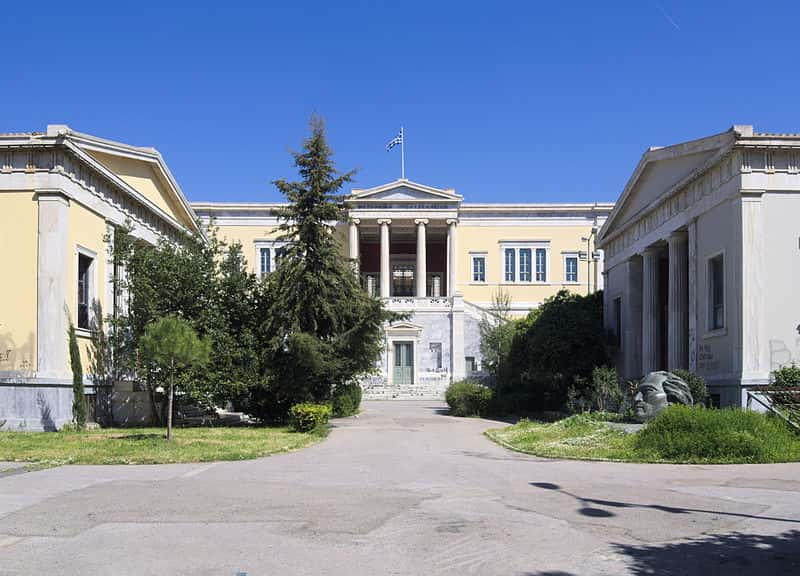 Wikipedia
Wikipedia
5. Rejected!
Athens hosted the first modern Olympic games in 1896 and then hosted them again in 2004. However, there was a prominent attempt on their part to host the 1996 Olympics in the city of Athens. However, their bid was widely criticized for ignoring serious problems which would hinder the Games if they were held in Athens, including unprepared infrastructure, air pollution, and more. Moreover, the Athenians reportedly put people off by their high-minded assumption that they deserved the right to host the Olympic Games before anyone else simply due to the history of the Olympics. We wish we could have been flies on the wall for that rejection notice.
4. No Gold??
The 1896 Summer Olympics were organized much differently than the Olympics of today. Winners received silver medals, while the first runners-up got copper (gold and bronze were introduced later on). Being the first Olympic Games in a long time, things were also more modest; only 14 nations, mostly from Europe, participated in the games.
3. Failing at Feminism Again, Athens?
Athenian democracy wasn’t quite as democratic as some people like to claim. The democratic Athenians still kept slaves, just like the rest of the Greek city-states. Moreover, women didn’t have the right to vote, and couldn’t own property in their own name—ironically, unlike in Sparta, where they could.
2. Democratic Instincts
Although Athenian Democracy has been hailed as a monumental event in the history of government and politics, there were many who criticized the way democracy used to be set up. Plato, whose mentor, Socrates, had been sentenced to death for his corruption of the youth with his new philosophies, argued that the majority of people were not educated enough to know what was best for them, and could not be trusted to always vote for what was best. We’ll let you look at the history of democracy and let you decide for yourself how good that argument stands.
1. We Hope There’s a Heaven for This Man
We would be very remiss to not mention the heroism of Elias Barzilai, the Grand Rabbi of Athens in 1943. During the occupation of Greece, he was ordered to submit a list of names and addresses of Jews living in Athens. In a great act of defiance, Barzilai tore up and burned the community records and warned his congregations to run away or hide. He himself was taken in by the EAM-ELAS, which saved hundreds of Jewish lives, on top of the thousands which Barzilai’s initial actions likely saved.
Sources: 1, 2, 3, 4, 5, 6, 7, 8, 9, 10, 11, 12, 13, 14, 15, 16, 17, 18, 19, 20, 21, 22, 23


